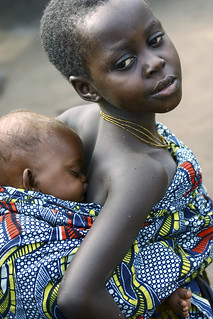Congo Travel Fact Sheet
Contents
Basic Info
Country Name
The Democratic Republic of the Congo
What the People are Called
Congolese
Ethnic Groups
Over 200 ethnic groups populate the Democratic Republic of the Congo, of which the majority are Bantu peoples. Together, Mongo, Luba and Kongo peoples (Bantu) and Mangbetu-Azande peoples constitute around 45% of the population.
In 2009, the United Nations estimated the country's population to be 66 million people,[99] a rapid increase from 39.1 million in 1992 despite the ongoing war. As many as 250 ethnic groups have been identified and named. The most numerous people are the Kongo, Luba, and Mongo. About 600,000 Pygmies are the aboriginal people of the DR Congo.[101] Although several hundred local languages and dialects are spoken, the linguistic variety is bridged both by widespread use of French and intermediary languages such as Kongo, Tshiluba, Swahili, and Lingala.
U.S. Embassy
U.S. Embassy Kinshasa 310, Avenue des Aviateurs Kinshasa, Gombe République Démocratique du Congo Tel: +243 81 884-6623 (Mondays through Thursdays from 3 to 5 p.m.) or +243-81-880-556-0151 Email: KinshasaAdoptions@state.gov Website: Kinshasa.usembassy.gov
Canadian Embassy
Street Address The Embassy of Canada 17, Pumbu Avenue Gombe Commune Kinshasa Democratic Republic of Congo
Postal Address The Embassy of Canada P.O. Box 8341 Kinshasa 1, Democratic Republic of Congo
Telephone: (243) 99 60 21 500 Fax: (243) 99 60 21 510 or (243) 99 60 21 511 Email: knsha@international.gc.ca
Money
Congolese Franc
Time Zone
WAT and CAT (UTC+1 to +2) Summer (DST) not observed (UTC+1 to +2)
Phone/Internet Information
Calling code +243 ISO 3166 code CD Internet TLD .cd
Major Languages Spoken
French is the official language of the Democratic Republic of the Congo. It is meant to be an ethnically neutral language, to ease communication among the many different ethnic groups of the Congo.
Approximately 242 languages are spoken in the country, but only four have the status of national languages: Kikongo (Kituba), Lingala, Tshiluba and Swahili. Although some people speak these regional, or trade languages, as first languages, most of the population speak them as a second language after their own tribal language. Primary education tends to be in the national Bantu language of the region, and secondary education, and beyond, tends to be in French. Lingala was made the official language of the colonial army, the "Force Publique" under Belgian colonial rule. But since the recent rebellions, a good part of the army in the East also uses Swahili where it is prevalent. When the country was a Belgian colony, it had already instituted teaching and use of the four national languages in primary schools, making it one of the few African nations to have had literacy in local languages during the European colonial period. During the colonial period both Dutch and French were the official languages but French was by far the most important. About 24,320,000 people of DRC speak French either as a first or second language.
Major holidays
- January 1 New Year's Day
- May 1 Labor Day
- June 10 Reconciliation Day (Commemoration of the Conference on National Sovereignty)
- August 15 Independence Day
- November 1 All Saints' Day
- December 25 Christmas Day
Source: Public Holidays Congo
Source: Wikipedia Congo
